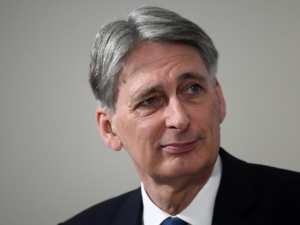The impact of the budget on families does not look as hopeful as many UK families might hope for as an analysis of the Budget has found that families are now projected to be in the early stages of the longest period of disposable income decline in more than 60 years.

The Resolution Foundation, a think tank which focuses on how to bolster living standards, said Philip Hammond’s speech painted a bleak outlook as the country gets to grips with a slowing economy linked to Brexit.
Its downbeat tone was mirrored in a separate study of the Budget small print by the Institute for Fiscal Studies.
It suggested the UK was on course for two decades of lower earnings growth, rather than just one following the 2008 crash and also calculated that national debt may not return to pre-financial crisis levels until the 2060s or later.
Both organisations also used updated forecasts from the Office for Budget Responsibility (OBR) to compile their findings.
The foundation said they showed the economy was on course to be £42bn smaller in 2022 compared with the projections in March.
The organisation calculated individual disposable incomes would be £540 lower in 2023 than was being forecast in March, while annual pay would be down around £1,000.
Commenting on the impact on living standards, it said: “The current income squeeze is set to be longer (though shallower) than the post-crash squeeze, with real household disposable incomes set to fall for an unprecedented 19 successive quarters between 2015 and 2020.
“Despite welcome but relatively small shifts on Universal Credit, tax and benefit policies announced since [the] summer Budget [of] 2015 are set to put downward pressure on living standards and upward pressure on inequality.
“The poorest third of households are set for an average loss of £715 a year by the end of the parliament, while the richest third gain an average of £185.”
In terms of the public finances, it claimed the Chancellor “had all but abandoned” his aim of achieving a budget surplus by the middle of the next decade because of extra spending and borrowing.
The report said that while his focus on housing was welcome, it criticised the stamp duty measures for first-time buyers.
The tax is now removed for purchases up to £300,000 and on the first £300,000 of the purchase price of properties worth up to £500,000.
But the foundation said it would cost £160,000 for every additional home owner created, “sufficient for the Chancellor to have instead simply given people typically priced properties in over a quarter of local authorities in England and Wales”.
IFS director Paul Johnson told reporters boosting productivity was key to alleviating economic headwinds facing the country.
“The UK is currently growing more slowly than other advanced economies.
“The immediate effects of all this on households is already being felt. Real earnings are falling this year as inflation has risen to 3%.
“The nascent recovery in earnings, which were growing through 2014 to the first half of 2016, has been choked off.
“That they even might still be below their 2008 level in 2022 as the OBR forecasts is truly astonishing. Let’s hope this forecast turns out to be too pessimistic.”
Responding to claims his stamp duty measures will push up prices, he said the Government’s efforts to accelerate building would boost supply and help bring prices down.
He also denied any suggestion Britain was now the ‘sick man of Europe’ given the OBR’s productivity and wider growth downgrades, suggesting eurozone nations were now catching up after lagging UK growth since the recession.
Kindly follow us on twitter:@AfricanVoice2








